11 Things You’ll Only Understand After Living in Buenos Aires
Only after living here do you begin to understand the unwritten rules and slowly, and sometimes unwillingly, fall completely in love with the madness.
Buenos Aires isn’t a city you merely visit; it’s one that slowly absorbs you, revealing its nuances, contradictions, and charms in whispered secrets and unexpected moments. It’s where passion is a daily ritual, time is a flexible concept, and social life is built around shared thermoses and late-night debates. From chaotic colectivo rides to the silence during penalty shootouts, life in Buenos Aires pulses with a rhythm all its own. Only after living here do you begin to understand the unwritten rules and slowly, and sometimes unwillingly, fall completely in love with the madness.
1. Cash is King
Step off the plane with a wallet full of sleek credit cards, and you’ll quickly learn: Buenos Aires still adores the crinkle of cash. While the infamous dólar blue, Argentina’s unofficial exchange rate, has recently aligned with the official rate (a rare moment of calm in an otherwise turbulent economy), old habits die hard. Porteños still trade and save in paper, as if it were gold, preferably U.S. dollars, ideally newer ‘big head’ bills with no creases, as if a wrinkle might trigger another financial crisis.
Paying in cash isn’t just common, it’s rewarded. Shops, restaurants, and market traders often knock a welcome percentage off your bill for paying en efectivo (cash), while card payments can mysteriously cost more and be accompanied with a “con tarjeta es otro precio, eh” (“it’s a different price for card”). For newcomers, it’s confusing. For locals, it’s a perfectly rational response to decades of economic whiplash.
2. Time is a Relative Concept
Social life in Buenos Aires is sacred. It’s how friendships deepen, gossip flows, and life’s chaos is soothed over. But while plans are forever being made, punctuality is more of a loose suggestion than an expectation. Agreeing to meet a friend at a bar at 8 p.m. and showing up at 8.30 p.m. often still means you’ll be the first to arrive. The holy phrase “en camino” (on the way) is lovingly abused, and can mean anything from “I’ve just woken up,” “I’m just getting in the shower,” or “there’s no chance I’ll be there.”
Dinner invitations? Arrive on time and you’ll likely find the host half-dressed and only just starting to prepare. It’s also not uncommon for them not to be home. Arrive fashionably late and you’ll be rewarded with a smile, a drink, and zero guilt. Locals will enthusiastically tell you that it’s not laziness, but rather a time-bending and stretching that shapes itself around the rhythm of the city’s social culture.
3. Bus Etiquette is Sacredly Upheld
The colectivo, a colorfully painted, horn-tooting bus that drives at breakneck speeds 24 hours a day, is the lifeblood of BA’s public transportation. Appearing chaotic from the outside, step aboard and you’ll discover an unspoken code of honor. First rule of the colectivo: respect the queue, always. Locals will form a line so orderly it would make the British and Swiss weep, even at 2 a.m., with two people waiting in torrential rain.
Second rule: Chivalry kicks in once you are on board. Men, young, old, tattooed, suited, will leap to offer their seat to any woman, regardless of age or agility. It's not flirtation; it’s tradition. Dare to ignore an elderly or pregnant passenger, and you’ll be met with unsavory stares and guilt-tripping, silent judgment from all angles. The same goes when riding the Subte underground.
And then there’s the act of flagging a bus down. Don’t just stand there expecting one to stop, raise your hand out to signal your intent. And when it’s time to get off, make your way to the middle or back door and press the button in time. Drivers have no time for indecision.
4. Patience is a Contradiction
Porteños possess an innate ability to queue. They’ll stand calmly in mile-long lines outside the bank, the bakery, or a pop-up empanada stall without complaint, happily chatting as if time doesn’t exist. The same goes when waiting for a tardy friend. Rather than stress, they’ll simply sit back and order another coffee or beer. But put that same patient soul behind the wheel of a car and suddenly you’re in Grand Theft Auto: Avenida 9 de Julio Edition.
All bets are off. Lane markings are optional. Yellow lights are an invitation to speed up. And turn signals are pure decoration. The primero yo (me first) mentality kicks in hard. Everyone wants to go first, merge first, and arrive before you do, even if they have to cut you up and invent a lane in the process. Pedestrians, meanwhile, are in a real-life game of Frogger, forever guessing if they’ll be allowed to cross without horn honking and a passive-aggressive “go ahead but hurry the f#%k up” hand gesture.
5. Football is an All-Consuming Religion
In a country that often feels unpredictable, fútbol offers something of relative stability and certainty – 90 minutes of passion and collective joy, or heartbreak. The love affair is particularly strong in Greater Buenos Aires, which provides almost half of the clubs competing in the Primera Division top tier. Allegiances are passed down like surnames. If you don’t have a team, they’ll happily adopt you. And you’ll quickly be engulfed in the eternal debate of Maradona or Messi?
Here the sport is salvation, identity and a socially acceptable form of emotional therapy with fans screaming themselves hoarse while belting out an echoing gooooooollll. International matchdays transform the city. Streets empty, conversations shift, and grown adults cry openly in public. It’s not just about the game — it’s about release from a bad week, a broken heart, even a corrupt politician. As they say: “no te lo puedo explicar porque no vas a entender” (I can’t explain it to you because you won’t understand”).
Find out how to attend a match in Buenos Aires.
6. Sharing Hot Tea Through A Metal Straw is Normal
To the uninitiated and culturally uneducated, it’s a potential social horror: someone passes you a steaming gourd filled with bitter green leaves and a metal straw that’s just passed between the mouths of strangers. It’s also a sweltering 40°C outside and the last thing on your mind is a hot beverage. And so, the burning question: To sip, or not to sip. This is mate, not just a drink but an honored ritual, a connector, and a cherished pause in the day.
The ronda (mate circle) has rules. First, there’s the cebador (brewer) who painstakingly prepares and serves, always sipping first to test the brew. Then the gourd rotates clockwise. No skipping, no stirring, no wiping the bombilla (straw). Participants simply sip, nod, and pass while the conversation, or multiple conversations, flow. Want to politely bow out? Just say “gracias” as you pass the gourd along. It means “I'm good, thanks,” no offence taken. Accept a sip and you’ll become part of something quintessentially Argentine. Germs? Maybe. Connection? Undoubtedly.
Here’s some more about mate in Argentina.
7. Dog-Walking is a Respected Artform
Buenos Aires is openly and unapologetically in love with dogs. You’ll see them everywhere, from the sidewalks and parks to perched like royalty on café terraces. In 2020, a local census reported that there were approximately half a million dogs in the city. And Argentina, as a whole, is said to be the world’s most pet-rich country, with eight out of 10 families having at least one animal at home (81% of which are dogs). Dogs aren’t just pets, they’re cultural icons — they get talked to, dressed up, and adored like furry family members.
Enter the paseador de perros: part dog-whisperer, part traffic-dodger, part local legend. These pro dog walkers are city staples, gliding casually down sidewalks with a dozen or more leashes in hand. Forget about your yoga and pilates instructors, this is who really keeps the city in balance. They’re the glue holding together the pet-parent ecosystem, a lifeline to owners with busy schedules, and the heroes of dogs desperate to escape the confines of a stuffy apartment.
8. Slang is an Endearing Second Language
Mastering a language is hard enough, and more so when Argentines tell you they speak castellano rather than Español and pronounce the “ll” and “y” like an English “sh.” Then, just when you feel comfortable entering into a conversation, you’ll hear a curveball phrase like “estoy remando en dulce de leche” – literally translated as “I’m rowing in dulce de leche” but actually a reference to doing something difficult or struggling.
Welcome to Argentine slang, locally known as lunfardo, a street-smart mix of old-school Italian, indigenous words, and creativity. It’s ingrained in the fabric of porteño language, with many chats beginning with a curious “Che, boludo” (“Hey, big balls/fool”). Stick around long enough and you’ll be incorporating it into your vocabulary. Quirky phrases such as “si, pero no” (“yes, but no”), which convey agreement while not committing to anything, will become second nature. Just try not to “mandar fruta” (“bullshit” / literal: "send fruit”).
Learn some more ways to sound like a local when out about.
9. Bluntness is a Point of Pride
For the more sensitive traveler, engaging with porteños can be somewhat of a culture shock. Argentines are typically blunt, direct and open communicators who say things as they see them without mixing their words. Hearing an elegantly dressed 80-year-old woman scream “La concha que te parió” (“The c#%t that gave birth to you”) as she steps in dog poop is part of daily life.
They’ve also historically taken great pride in their apodos (nicknames), without a second’s thought for political correctness either. They aren’t usually flattering or sugar-coated, but they stick and are considered a right of passage. “Gorda/o” (“Fatty”), “Flaca/o” (“Skinny”), “China/o” (“Asian-looking”) and “Negra/o” (“Darker-skinned”) are all totally acceptable. Should you have a redeeming feature or habit, even the slightest, then there’s a fair chance you’ll be going home with a new name.
Dig deeper into Argentine’s talent and fame as nickname creators.
10. Psychoanalysts are a Porteños Best Friend
Therapy isn’t just for the troubled in Buenos Aires, it’s practically a national pastime. You could go as far as saying that it’s the Psychoanalysis Capital of the World. While other countries are only recently raising the taboo of mental health discussions, here they’ve long been treating it with the same nonchalance as they do football and politics. There’s even an unofficial section of Palermo known locally as Villa Freud.
Psychoanalysis here is the equivalent of a personal trainer for your mind. Locals commit years, even decades, to weekly meetings. Friends discuss sessions over coffee, willingly revealing childhood secrets, relationship issues and more for others to overhear. And if they aren’t in therapy, there’s a high possibility they are studying to provide it. Linger long enough and a session might pique your curiosity. After all, what better way to survive the emotional rollercoaster of Argentine life than with a trained professional and a reclining couch?.
11. Porteños Dress According to the Season, Not the Weather
Meteorology bows to the calendar in Buenos Aires. It doesn’t matter if it’s a balmy 20°C and the sun is shining. If it’s officially autumn, the jackets, scarves, and ankle boots appear like clockwork. You’ll be sweating in a T-shirt while locals amble by in layers better suited to a ski lodge, looking at you like you’re the one who’s lost the plot. Parents will also take pride in repeatedly telling a foreign father and his offspring that they are wearing shorts at the school gate.
The seasonal wardrobe switch is a time-honored tradition. Around May, summer clothes are packed with near-ceremonial reverence for the wardrobe “cambio de ropa” (“clothes switch”). It makes room for dark tones and the city’s unofficial uniform: black everything. It relates to an unspoken cultural agreement that fashion must respect the season. Cold? Warm? Who cares! What matters is that it's July, and you're wearing a coat like a respectable adult.
For more insightful tips about living in and visiting the city, check out our Buenos Aires Travel Guide 2025: Everything First-Time Visitors Need to Know.


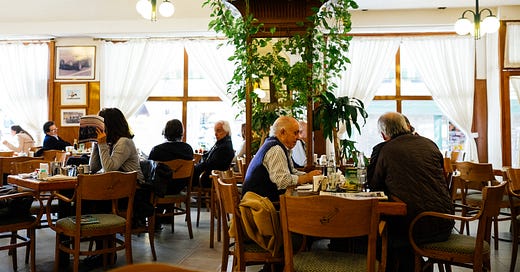



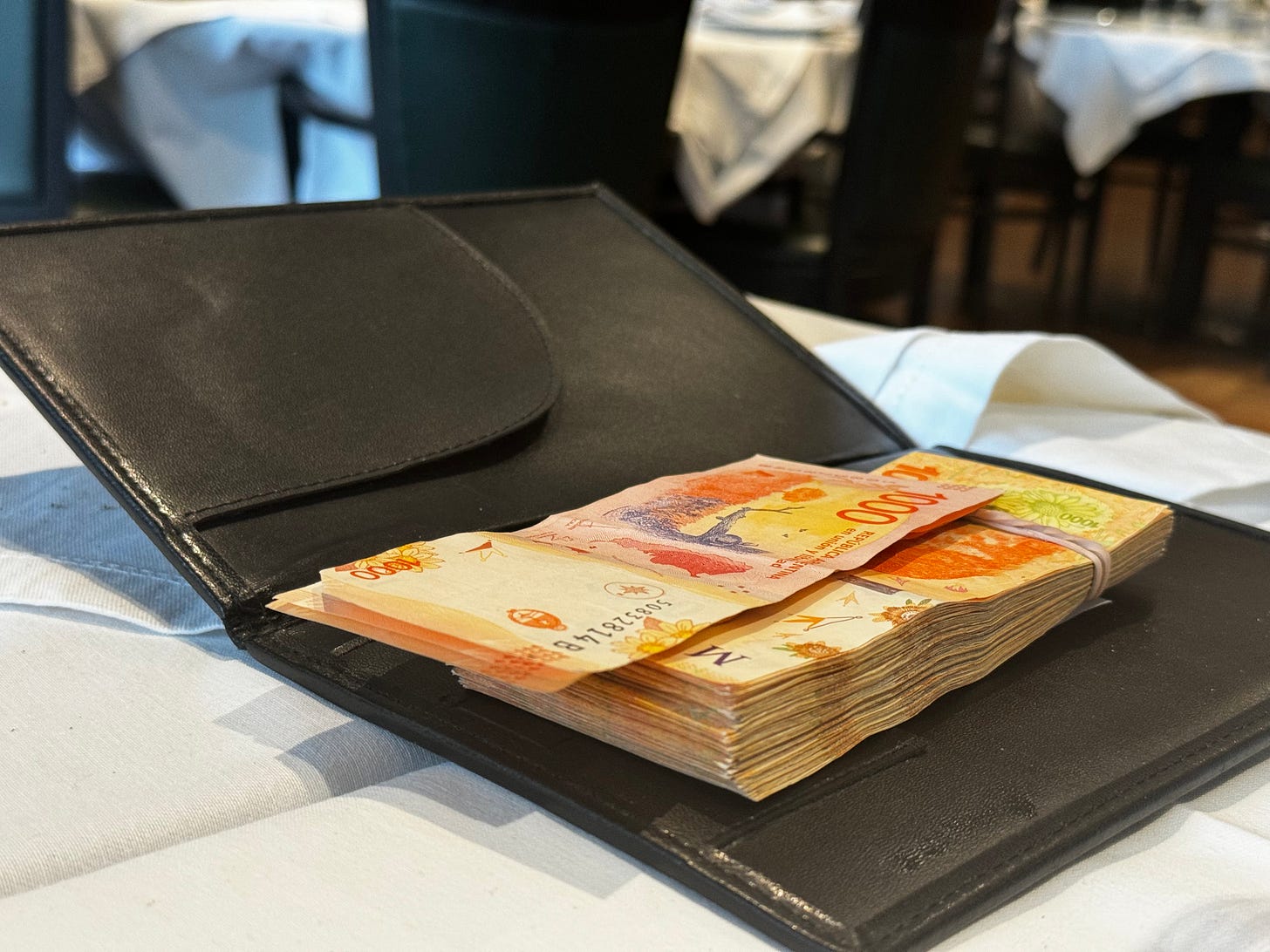

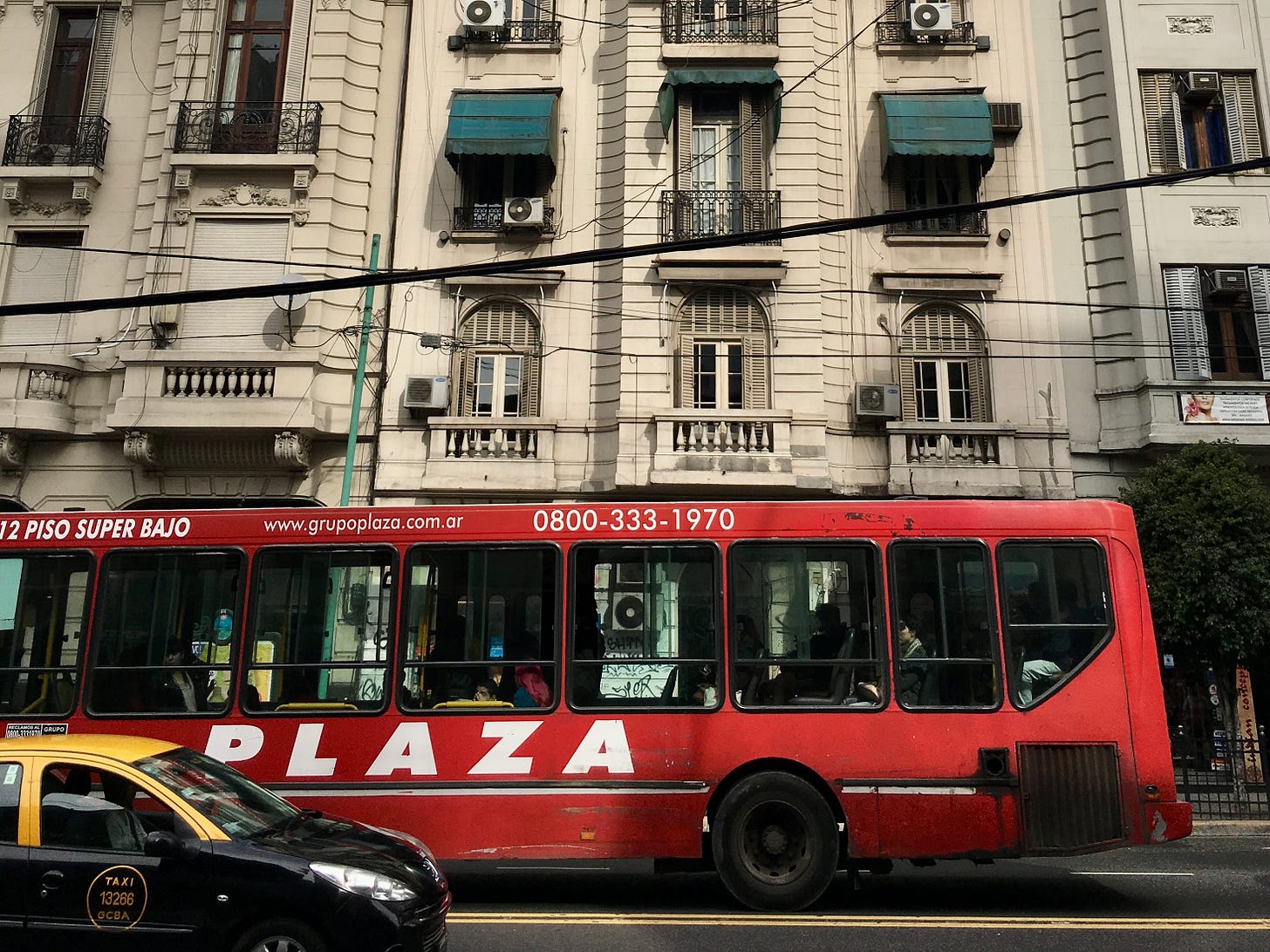
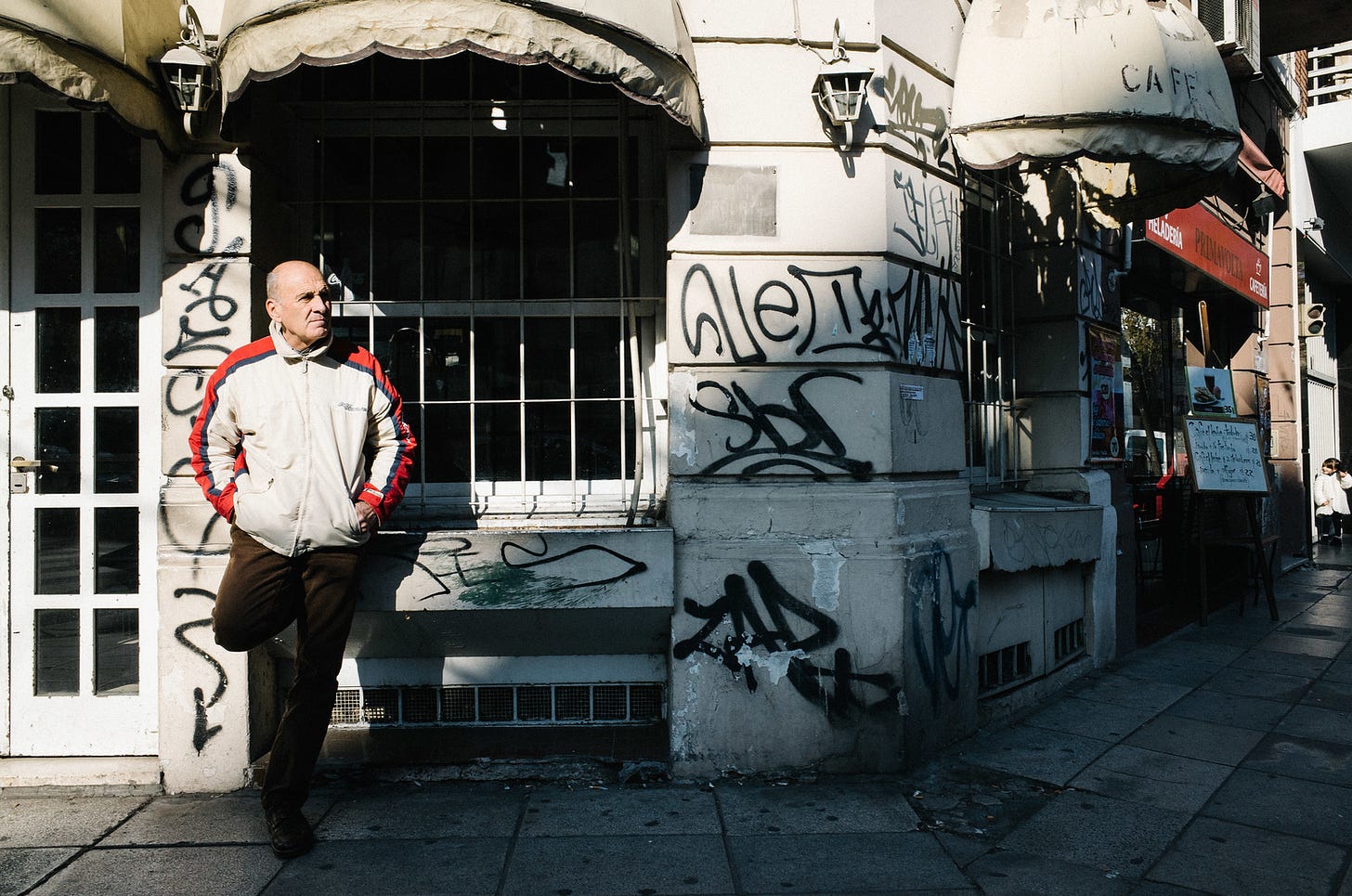



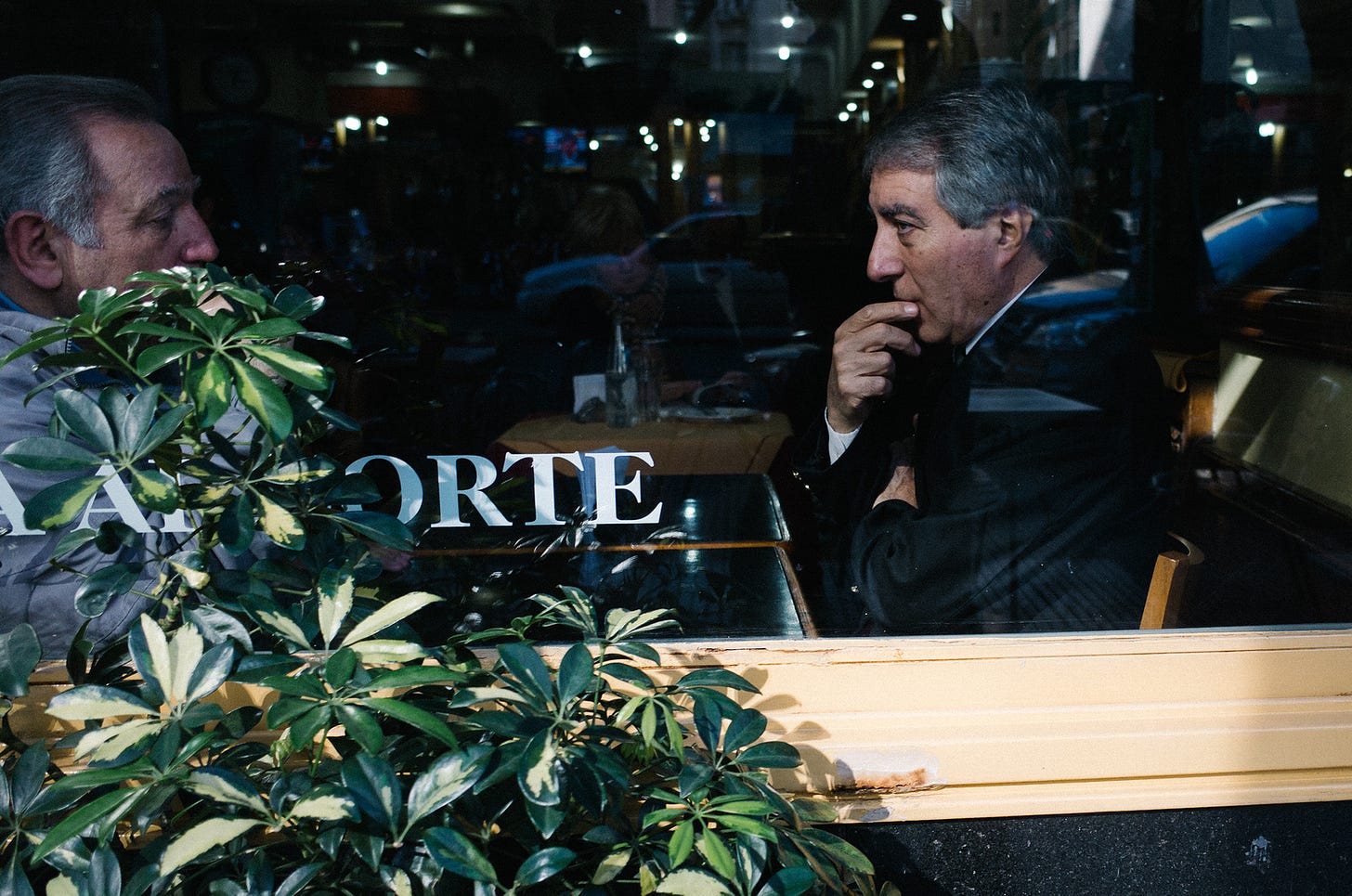
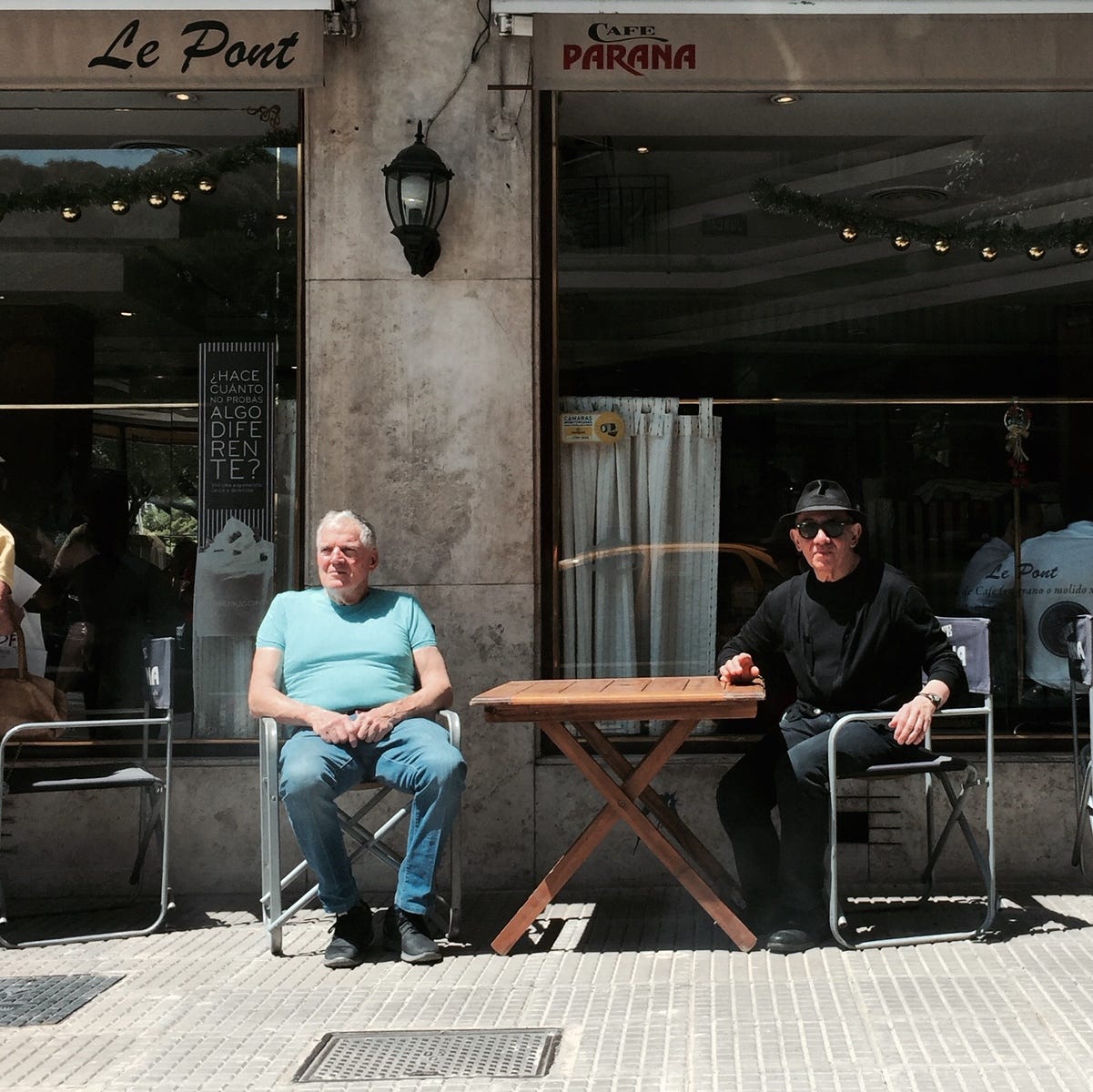

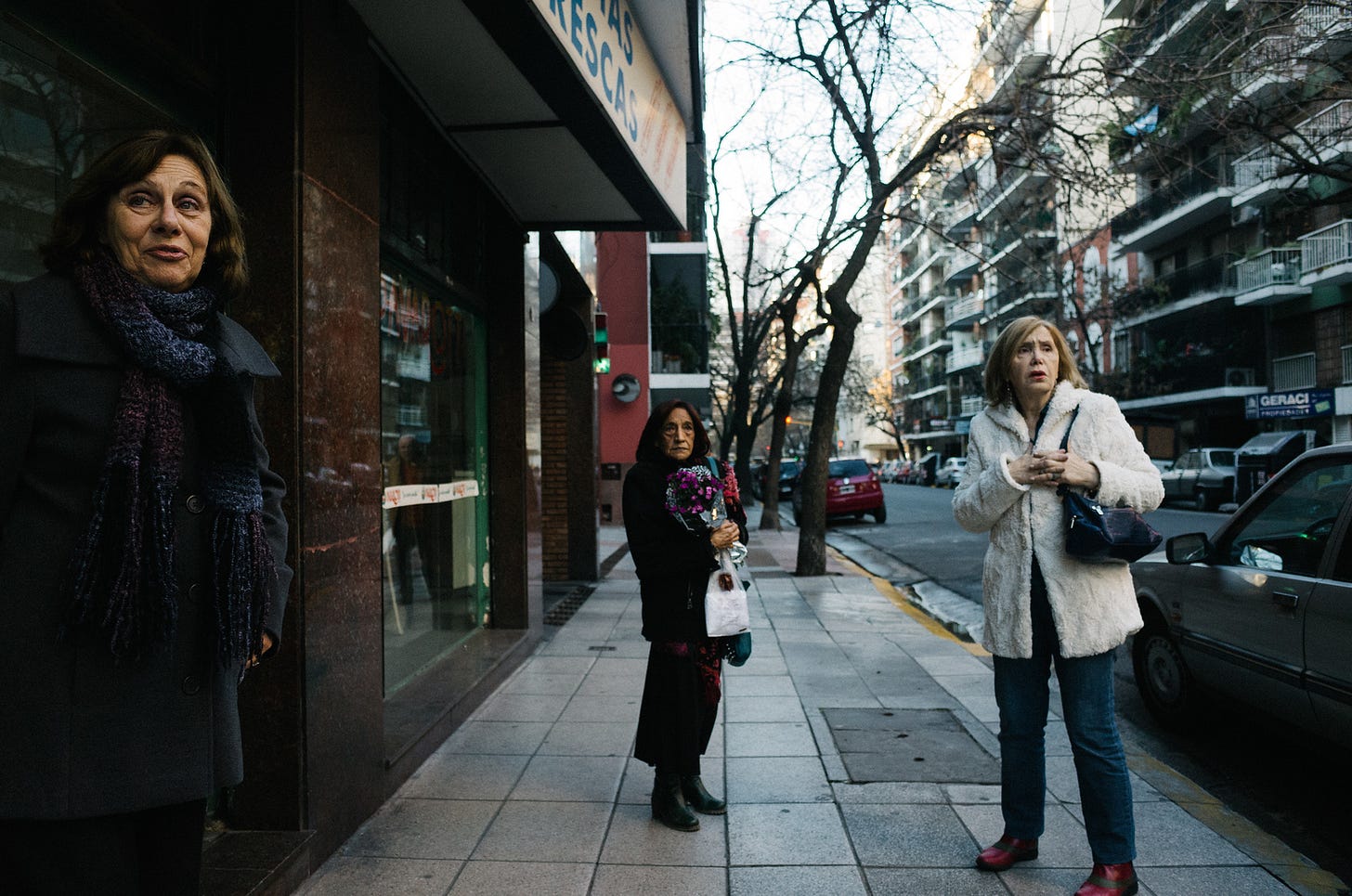
Great stuff! Agree with everything.
As an Englishwoman, I find it almost impossible to explain to porteño friends that queuing in such a civilised manner forthe bus doesn't exist any more in Britain. I've actually stopped trying, because they get so upset. 🤣
'Buenos Aires te mata' is a point of pride not a lament